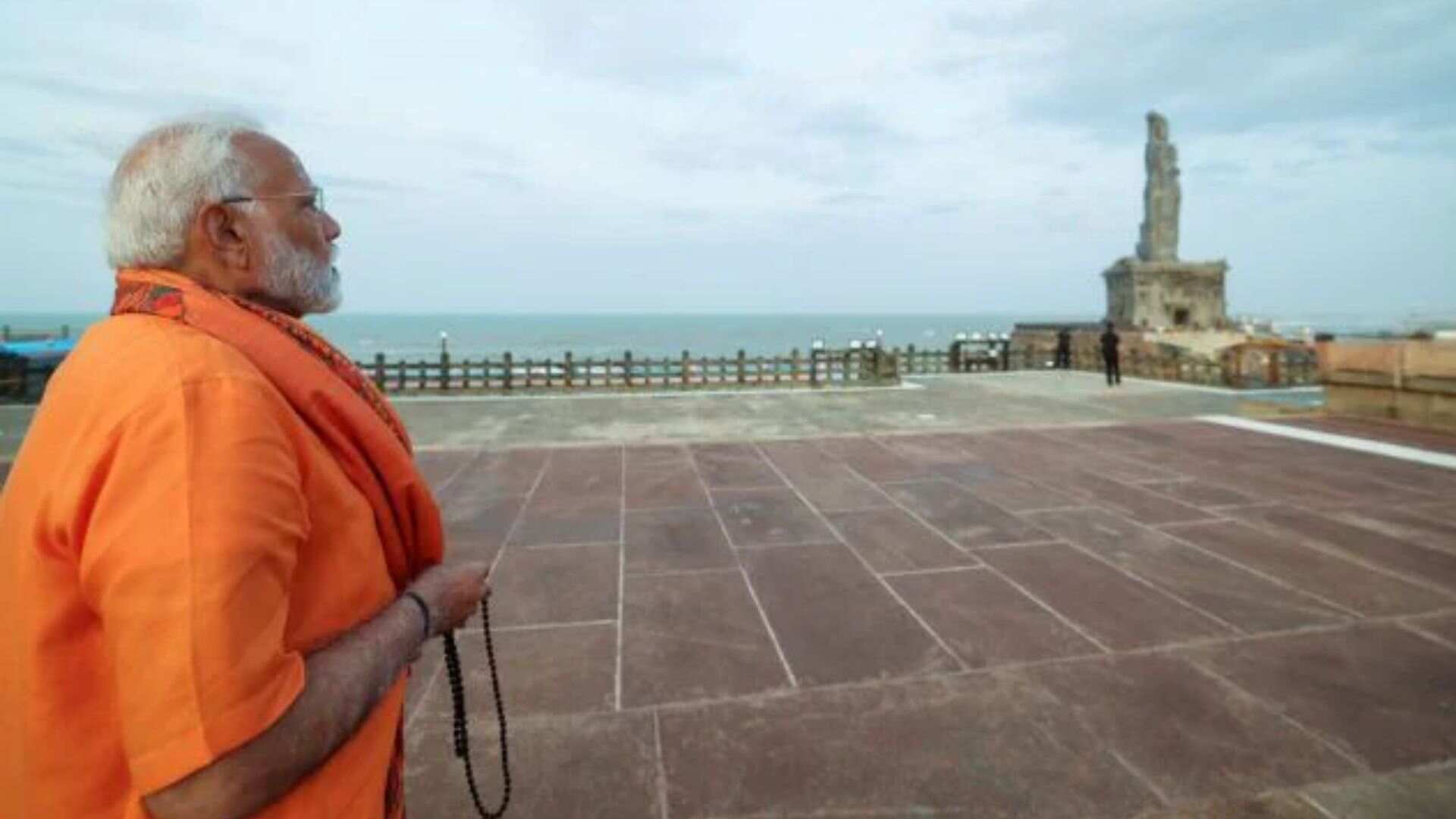After concluding his Lok Sabha campaign, Prime Minister Narendra Modi has recently visited Kanyakumari on Thursday, where he began a 45-hour meditation session at Vivekananda Rock Memorial.
As a result, opposition parties like Congress and TMC have raised a question on Bhartiya Janata party over this visit.
Later on, Wednesday, Congress issued a complaint to the Election Commission of India, demanding that the Prime Minister’s visit be either rescheduled or its broadcast be banned, as it allegedly violates the model code of conduct.
The delegation led by national spokesperson Abhishek Singhvi met the ECI officials and lodged the complaint. “We told the ECI that no one is allowed to campaign directly or indirectly during the silence period…” said singhvi.
Before understanding ECI’s action, let’s take a look at the concept of silence period.
What is a Silence Period?
The “silence period” typically spans a 48-hour duration, during which political parties and candidates are prohibited from campaigning.
According to Section 126 of the Representation of the People Act, 1951, all election campaigning must cease during the 48-hour period leading up to the conclusion of voting.
Moreover, restrictions are imposed to mitigate the influence of media and politicians on voters.
As per Indian express’s report, the district magistrate issues direction for the ban of unlawful assemblies, public meetings, the use of loudspeakers, and limiting gatherings to fewer than five people.
But door-to-door campaigning is allowed. However, political advertisements through electronic and social media aren’t allowed.
Why Opposition Complained?
On Wednesday, Congress Spokesperson Abhishek Singhvi informed the media that they had met EC officials to express their grievances.
During their meeting, they told EC, that during silence period, no one is allowed to campaign directly or indirectly.
Citing instances on how PM is violating Model code of conduct, singhvi asserted,
“These are ways that you are campaigning or are broadcasting yourself through channels and print media. We have kept two very simple points before the ECI. Either the PM starts this 24-48 hours later. After June 1 evening, he can do it. And if he insists that he will start it… then it is necessary that a ban is imposed on its broadcasting on print and visual media. He is himself a candidate in the last phase. This kind of broadcast should not be allowed.”
Were The MCC Rules Violated? What Will ECI Do?
As the Prime Minister is expected to observe a 45-hour period of meditation, technically he is not engaged in campaigning during the 48-hour silence period.
Consequently, it ensures that Section 126 of the model code of conduct has not been violated.
According to an Economic Times report, the Prime Minister’s Office (PMO) had previously informed the Election Commission about Modi’s visit to Kanyakumari on May 29.
Additionally, the multi-phase nature of this election might work in the Prime Minister’s favor.
As, a note from the poll panel clarified on April 2 that media coverage during the period referred to in Section 126 of the Representation of the People Act is not applicable in multi-phase elections.
ECI’s Earlier Response to PM Modi’s 2019 Kedarnath Visit
Previously during 2019 election, PM Modi earlier visited kedarnath, ahead of Varanasi’s polls.
That time, many opposition parties complained to ECI, but poll body gave him the nod for the visit.
However, the PMO was reminded, that the model code of conduct is still in force.









